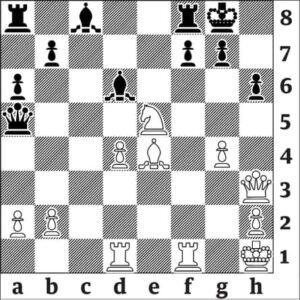
Uefa has paid more than €10.8m (£9.4m) in “solidarity” funds to Russian football clubs since they were banned from taking part in European tournaments after the Kremlin’s invasion of Ukraine, the Guardian can reveal.
The payments were made despite five Ukrainian clubs failing to receive similar such funds allegedly due to their locations being in a “zone of military operations”.
Solidarity payments are generally provided to clubs that fail to do well enough at the domestic level to get into European competitions. They are designed to “maintain competitive balance in Europe’s top divisions in light of the additional revenue some clubs receive through participation in European competitions”, according to Uefa.
Russian clubs and the country’s national team have been banned from taking part in international competitions since Vladimir Putin ordered the invasion of Ukraine in February 2022.
Despite the ban, Uefa paid €3,305,000 in solidarity payments to the Russian football association in 2022-23, a further €3,381,000 in 2023-24, and €4,224,000 for the 2024-25 season.
There was also a payment of €6,209,000 in 2021-22, according to Uefa circulars. The football association is obliged to pass on the money to the clubs.
At the same time, the directors of five Ukrainian clubs wrote to the president of Uefa, Aleksander Čeferin, a Slovenian lawyer, on 27 July to complain of an “extraordinary situation” in which their “solidarity” payments for 2023-24 and 2024-25 were withheld.
The affected teams are Chornomorets and Real Pharma, which are based in Odesa; IFC Metalurg from Zaporizhzhia; FSC Phoenix Mariupol from the occupied southern port city; and FC Metalist 1925 from Kharkiv.
The clubs’ directors wrote: “As a result of our communication with both the national association and Uefa officials we have been informed that the obstacle to the above payments is some completely unclear requirements of a bank in Switzerland, which allegedly relate to the geographical location of the football clubs in the ‘war zone’.
“We have not received any more detailed information or any legal justification for these restrictions on payments. The wording used in relation to the ‘zone of military operations’ is completely unclear to us and does not correspond to reality.
“The zone of military operations, or rather the zone of military aggression of Russia, is not a specific region of our country, but the whole of Ukraine.”
The port city of Mariupol and parts of the Zaporizhzhia region in south-east Ukraine are occupied but that is not the case for Odesa, in the south, nor Kharkiv in the north-east.
The letter to Čeferin continues: “Many loyal Ukrainian football fans went to the front from the first days of the aggressions, many of them will unfortunately never be able to support their teams at the stadium, having died with the names of their favourite people and the name of their favourite team on their lips.
“Therefore in this difficult time for our country, any additional financial assistance and support will certainly help the clubs to ease the burden of financial expenses which, as mentioned above, due to the circumstances of military aggression cannot be balanced by possible revenues.”
A spokesperson for Uefa initially said they would provide a statement to explain the payments but then failed to offer any response.
after newsletter promotion
The revelation will raise fresh concern about Uefa’s approach to the Kremlin.
Russia has retained its presence within Uefa because its federation, the Russian Football Union, has not been suspended.
Polina Yumasheva, the former wife of the Kremlin’s “favourite industrialist”, the billionaire oligarch Oleg Deripaska, sits on Uefa’s governance and compliance committee. She is the daughter of a former adviser to Putin.
In September 2022, Ukraine’s manager Oleksandr Petrakov was fined by Uefa after he vowed in an interview with the Guardian to take up arms against Russia after its invasion of his country.
Uefa also attempted to reintroduce Russia’s under-17s team to international football in 2023 but the proposal was withdrawn after a dozen national associations, including England’s, publicly expressed their opposition.
In a letter to Uefa last March, the executive committee of the Ukrainian football association complained that Russian clubs were being given Uefa ranking points in each season that they are suspended.
The total number of points earned by a country in a season determines how many teams in their domestic game will take part in European tournaments, including the Champions League.
The number of points given to Russia equates to the lowest that Russian teams have earned in the last five seasons, but critics have argued that it undermines the impact of the international suspension.








